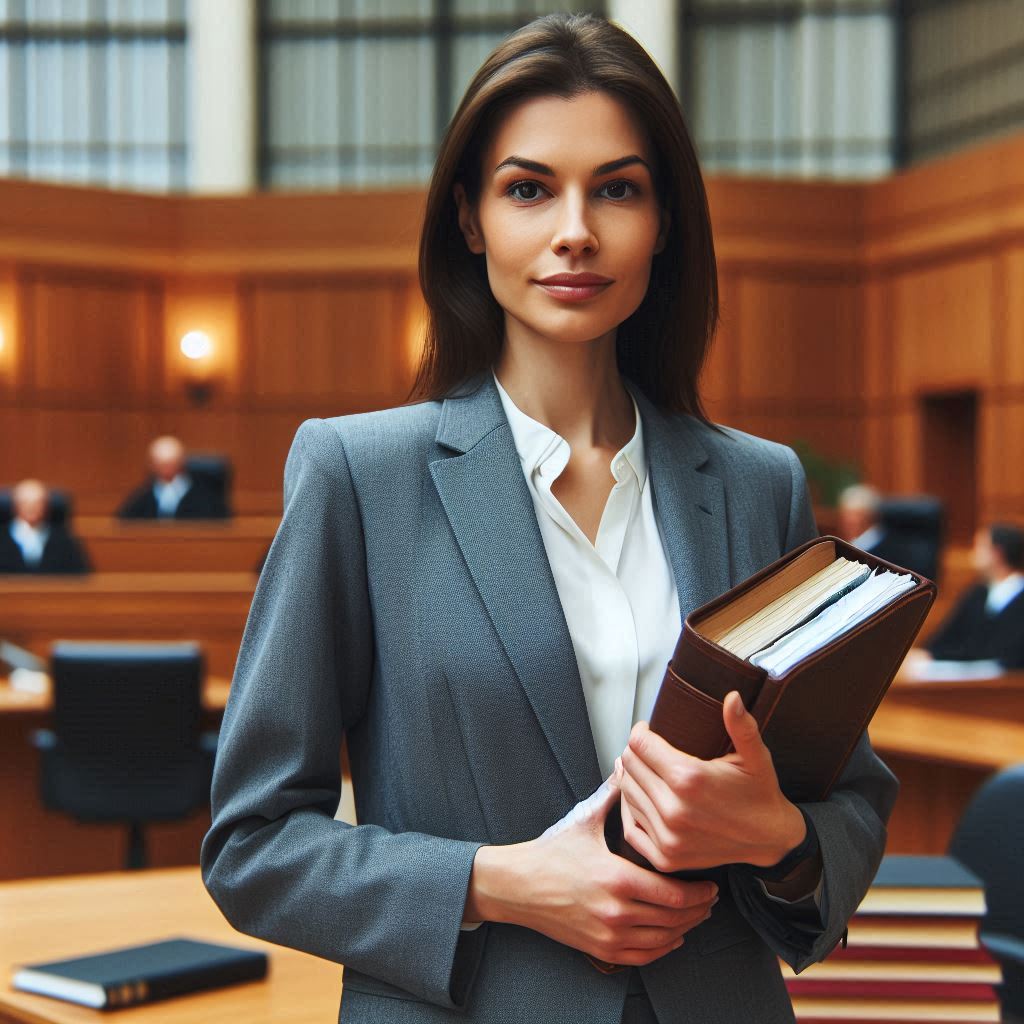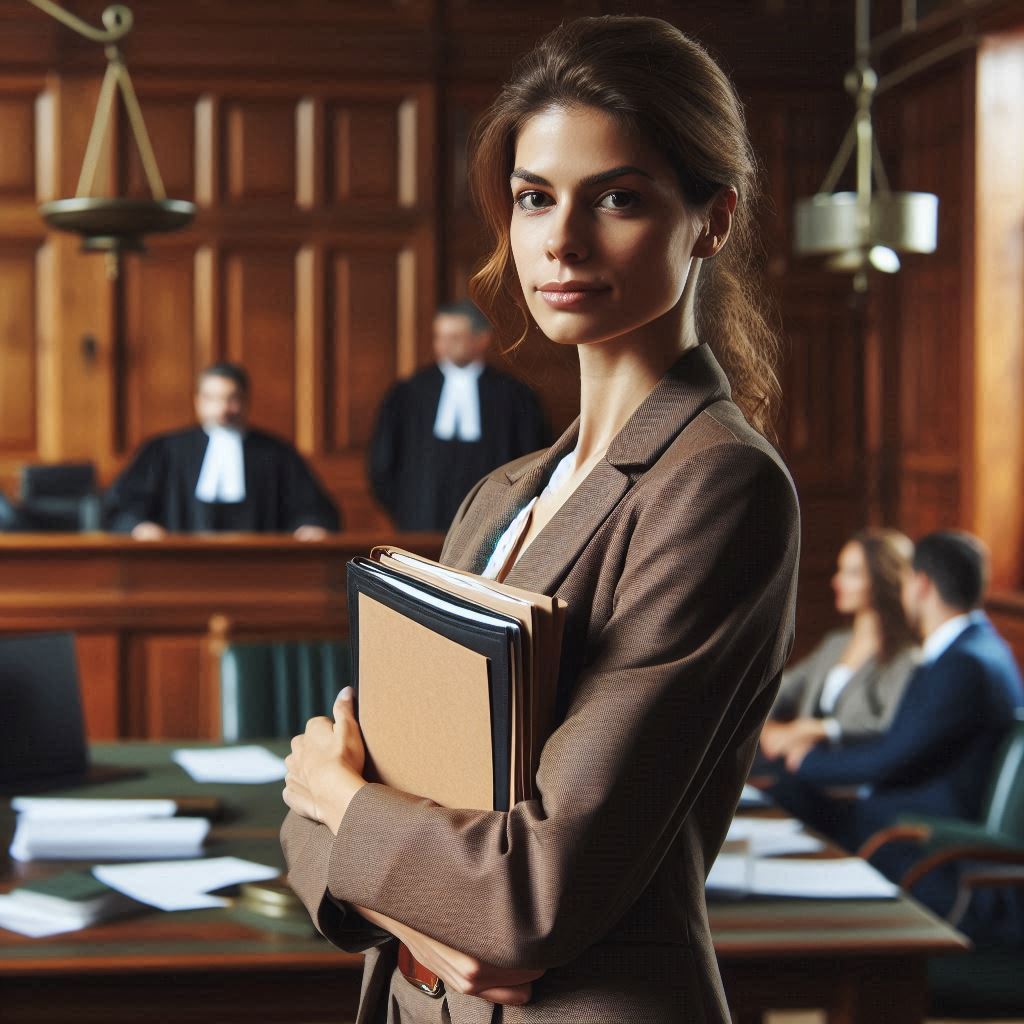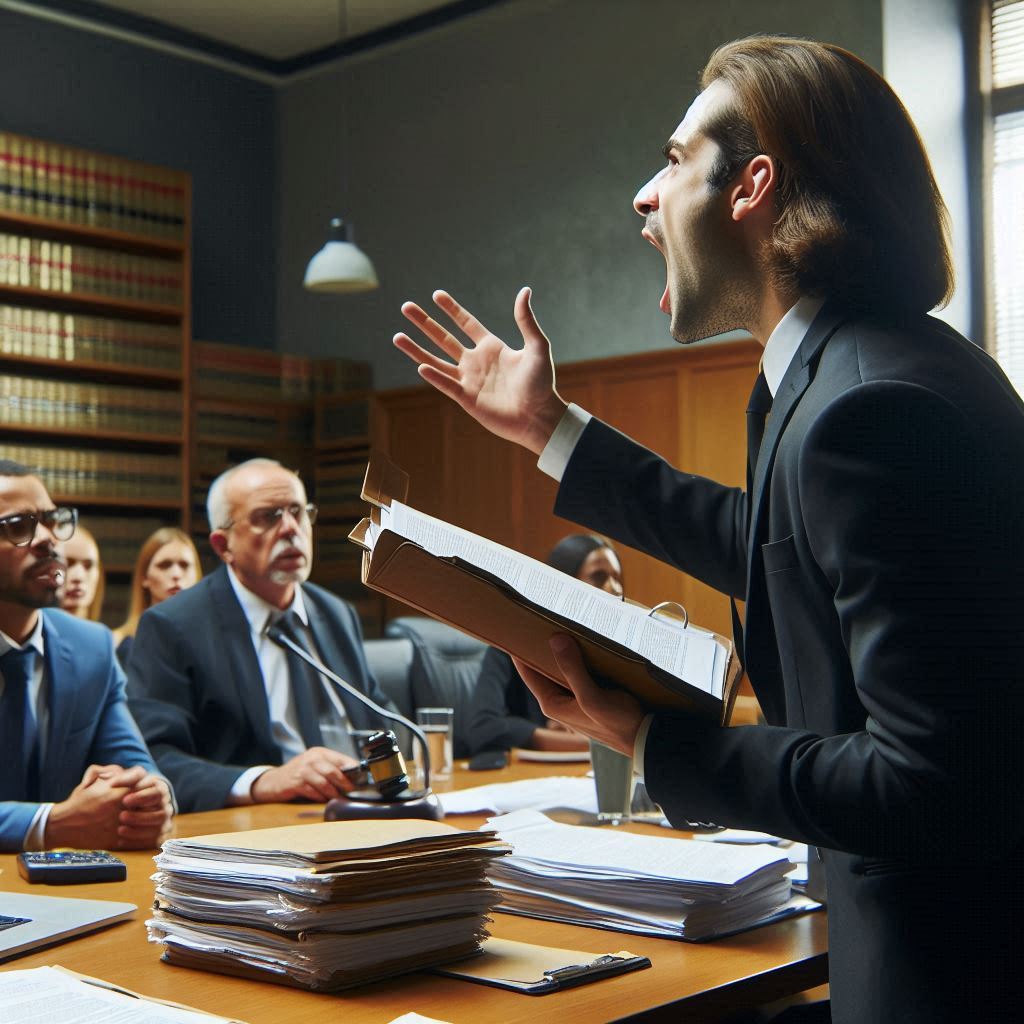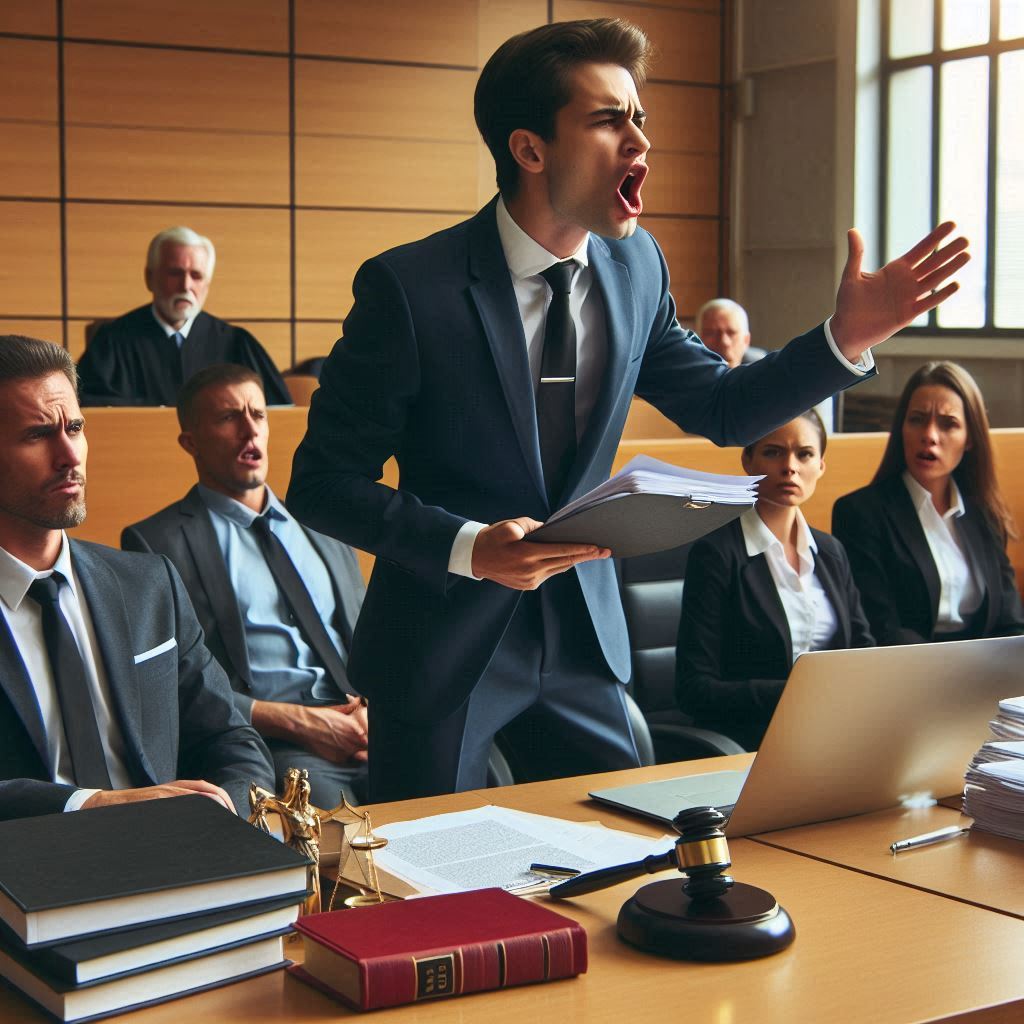Introduction
In the criminal justice system, understanding the prosecutor’s role is crucial. Prosecutor in Criminal Cases
Prosecutors play a pivotal role in bringing criminal cases to justice.
They represent the state or government in pursuing charges against individuals accused of committing crimes.
This blog post aims to delve into the responsibilities and significance of prosecutors in criminal proceedings.
Importance of the Prosecutor
The prosecutor serves as the advocate for society’s interests in criminal cases.
They are responsible for evaluating evidence, deciding whether to file charges, and presenting the case against the defendant in court.
Their role is vital in upholding justice, ensuring public safety, and seeking appropriate punishment for criminal acts.
Prosecutors also play a critical role in plea negotiations and influencing sentencing outcomes.
Throughout criminal proceedings, prosecutors perform multifaceted duties.
They initiate cases based on police investigations or complaints, assess the strength of evidence, and determine the charges to be filed.
Prosecutors prepare legal arguments, examine witnesses, and present evidence during trials to prove guilt beyond a reasonable doubt.
Post-conviction, they may also handle appeals and uphold convictions in higher courts.
Challenges Faced by Prosecutors
Prosecutors encounter various challenges in their roles.
These include ethical dilemmas, such as ensuring fairness while vigorously advocating for the state, and managing heavy caseloads that demand meticulous preparation for each trial.
Additionally, maintaining impartiality amidst public and political pressures can be demanding.
Ethics guide prosecutors to uphold justice and protect defendants’ rights.
They must disclose all evidence favorable to the accused and avoid improper methods to secure convictions.
Legal standards require prosecutors to adhere strictly to procedural rules, ensuring due process and fairness in every case.
In general, understanding the prosecutor’s role in criminal cases is essential for comprehending the dynamics of the legal system.
Prosecutors wield significant influence in shaping case outcomes and safeguarding justice.
This blog post has explored their pivotal responsibilities, ethical challenges, and the critical importance of their role in upholding the rule of law.
As pivotal figures in the pursuit of justice, prosecutors stand as advocates for society’s safety and the integrity of the legal process.
Definition and Responsibilities of a Prosecutor
What A Prosecutor Is And What Their Main Responsibilities Are
A prosecutor is a legal representative of the state in criminal cases.
They are responsible for presenting evidence against individuals accused of crimes.
Prosecutors play a crucial role in the criminal justice system by ensuring that justice is served and that the laws of the land are upheld.
Prosecutors have many responsibilities, including reviewing evidence, deciding whether to file charges, and representing the state in court.
They work closely with law enforcement agencies to gather evidence and build a strong case.
Additionally, prosecutors must ensure that the rights of the accused are protected throughout the legal process.
In many jurisdictions, prosecutors are elected officials, which means they are accountable to the public.
This accountability is essential because it helps maintain the integrity of the criminal justice system.
Prosecutors must balance their duty to seek justice with the need to uphold the legal rights of individuals.
Charging Individuals with Crimes
One of the primary responsibilities of a prosecutor is to decide whether to charge an individual with a crime.
This decision is critical because it can significantly impact the lives of those involved.
Prosecutors must carefully review all available evidence to determine if there is enough to support a charge.
The process of charging an individual begins with an investigation by law enforcement.
Once the investigation is complete, the prosecutor reviews the evidence and determines if it meets the legal standard for prosecution.
This standard varies by jurisdiction but generally requires a reasonable belief that the individual committed the crime.
If the prosecutor decides to file charges, they must draft a formal complaint or indictment.
This document outlines the specific charges and provides a summary of the evidence.
The prosecutor then presents this document to a judge or grand jury, who will determine if there is probable cause to proceed with the case.
Collaboration with Law Enforcement and Other Agencies
Prosecutors work closely with law enforcement agencies throughout the entire criminal justice process.
This collaboration is essential for building strong cases and ensuring that justice is served.
Law enforcement officers gather evidence, interview witnesses, and make arrests.
Prosecutors then use this information to build a case and present it in court.
In addition to working with law enforcement, prosecutors often collaborate with other agencies, such as forensic labs and social services.
Forensic labs analyze physical evidence, such as DNA and fingerprints, which can be crucial in proving a case.
Social services may provide support to victims and witnesses, helping them navigate the legal process.
Prosecutors also work with defense attorneys to ensure that the legal process is fair and just.
While the prosecutor’s primary goal is to secure a conviction, they must also respect the rights of the accused.
This means providing evidence to the defense and allowing them the opportunity to challenge the prosecution’s case.
In a nutshell, prosecutors play a vital role in the criminal justice system.
They are responsible for reviewing evidence, charging individuals with crimes, and working with various agencies to ensure justice is served.
Their work requires a careful balance between seeking justice and upholding the rights of the accused.
By understanding the prosecutor’s role, we can better appreciate the complexities of the criminal justice system and the importance of maintaining its integrity.
Read: Challenges Faced by Public Defenders Daily
Prosecutorial Discretion
Prosecutorial Discretion And Its Significance In Criminal Cases
firstly, Prosecutorial discretion is the power given to prosecutors to make decisions in criminal cases without interference.
This discretion allows prosecutors to prioritize cases based on various factors.
Prosecutors consider several factors when deciding to pursue charges.
first, They evaluate the strength of the evidence and the offense’s seriousness.
They review the defendant’s criminal history and the victim’s wishes.
They also assess the likelihood of a successful prosecution.
When prosecutors exercise their discretion, they must consider the interests of justice, fairness, and public safety.
This means weighing the potential impact of pursuing charges on the defendant, victim, and community as a whole.
In cases where the evidence is weak or the victim does not want to proceed, prosecutors may choose not to pursue charges.
This decision is made to ensure that resources are allocated effectively and that justice is served in a way that benefits all parties involved.
Examples of cases where prosecutorial discretion played a critical role
Examples of cases where prosecutorial discretion played a critical role include situations where a minor offense could be resolved through diversion programs instead of prosecution.
In these cases, prosecutors may choose to offer alternatives to traditional criminal proceedings to help the defendant avoid a criminal record.
Another example is when a victim requests not to pursue charges against an offender due to personal reasons.
Prosecutors may respect the victim’s wishes and decide not to move forward with the case, considering the impact on the victim’s well-being.
Overall, prosecutorial discretion is a crucial tool that allows prosecutors to make informed decisions in the interest of justice.
By carefully considering the various factors involved in each case, prosecutors can ensure that their decisions align with ethical standards and serve the best interests of the community.
Read: The Role of Public Defenders in the Justice System
Pretrial Procedures
Prosecutor’s Role In Pretrial Procedures
The pretrial phase is crucial in criminal cases, with the prosecutor playing a pivotal role.
The prosecutor’s responsibilities during this phase are vital for the progression of the case.
They ensure that justice is served from the onset.
During arraignments, prosecutors present the charges against the defendant.
They outline the allegations clearly and succinctly.
The prosecutor’s role here is to inform the defendant of the charges they face.
Additionally, prosecutors may recommend bail conditions or argue against bail.
They present evidence to justify their stance, aiming to balance public safety with the defendant’s rights.
By doing this, prosecutors help ensure that defendants appear for future court dates.
Gathering Evidence and Building the Case
Prosecutors actively gather evidence during the pretrial phase.
They collaborate with law enforcement to collect physical evidence and witness testimonies.
This involves interviewing witnesses, analyzing forensic reports, and reviewing surveillance footage.
The prosecutor ensures that all evidence is legally obtained and admissible in court.
They build a robust case by organizing this evidence methodically.
Additionally, prosecutors anticipate defense strategies and gather counter-evidence.
This comprehensive preparation is essential for presenting a compelling case at trial.
Presenting Evidence to the Grand Jury
The grand jury process is a critical step where the prosecutor’s role is highlighted.
Prosecutors present the collected evidence to the grand jury.
Their goal is to show that there is probable cause to believe the defendant committed the crime.
They provide a clear narrative supported by evidence.
This presentation includes witness testimonies, documents, and physical evidence.
The prosecutor’s ability to present a coherent and persuasive case is crucial here.
If the grand jury finds the evidence sufficient, they issue an indictment.
This indictment formally charges the defendant and allows the case to proceed to trial.
In the pretrial phase, the prosecutor’s role is multifaceted and essential.
From arraignments and bail hearings to gathering evidence and presenting it to the grand jury, the prosecutor ensures that the case progresses smoothly and justly.
Their meticulous preparation and strategic presentation of evidence lay the groundwork for the trial.
By fulfilling these responsibilities, prosecutors uphold the integrity of the criminal justice system and work towards achieving justice for all parties involved.
Read: Prosecutor Work-Life Balance: Managing Stress

Trial Phase
During the trial phase of a criminal case, the prosecutor’s role is crucial in presenting the case to the court. Here are some key aspects of a prosecutor’s role during this phase:
Role of the Prosecutor
- Presenting the case to the court: The prosecutor is responsible for presenting the evidence against the defendant in a clear and compelling manner.
- Questioning witnesses: Prosecutors work closely with witnesses to prepare them for testimony and questioning during the trial.
- Presenting evidence: Prosecutors must gather and present all relevant evidence to prove the defendant’s guilt beyond a reasonable doubt.
- Arguing the case: Prosecutors make opening and closing arguments to persuade the jury of the defendant’s guilt.
Working with Witnesses
- Preparation: Prosecutors spend time preparing witnesses for their testimony to ensure they are confident and credible on the stand.
- Direct Examination: Prosecutors question witnesses to elicit testimony that supports the prosecution’s case.
- Cross-Examination: Prosecutors may cross-examine defense witnesses to challenge their credibility and poke holes in their testimony.
- Rebuttal Witnesses: Prosecutors can call additional witnesses to counter any new evidence or testimony presented by the defense.
Presenting Evidence
- Introduction: Prosecutors introduce evidence such as documents, photographs, and forensic reports to prove the defendant’s guilt.
- Objections: Prosecutors must address defense objections to the admissibility of evidence and argue their relevance to the case.
- Expert Witnesses: Prosecutors may call expert witnesses to explain complex evidence or provide specialized knowledge to the court.
- Chain of Custody: Prosecutors establish the chain of custody for physical evidence to ensure its integrity and admissibility in court.
Strategies for Securing a Conviction
- Building a strong case: Prosecutors gather evidence, interview witnesses, and construct a compelling narrative to present to the jury.
- Focusing on key points: Prosecutors highlight key pieces of evidence and witness testimony that support the prosecution’s theory of the case.
- Emphasizing credibility: Prosecutors stress the credibility of witnesses and the reliability of evidence to bolster their case.
- Rebutting the defense: Prosecutors anticipate defense arguments and counter them effectively during the trial to weaken the defense’s case.
In review, the prosecutor’s role during the trial phase is pivotal in seeking justice and securing a conviction in criminal cases.
By presenting evidence, working with witnesses, and employing strategic tactics, prosecutors play a vital role in ensuring a fair and just outcome in court.
Read: Prosecutor Salaries: What to Expect in This Career
Learn More: Navigating Complex Immigration Laws with a Consultant
Delve into the Subject: Guardian ad Litem: Addressing Parental Alienation
Learn More: Forensic Accounting in Anti-Bribery Investigations
Transform Your Career Today
Unlock a personalized career strategy that drives real results. Get tailored advice and a roadmap designed just for you.
Start NowSentencing Phase
Prosecutor’s Role In The Sentencing Phase Of A Criminal Case
During the sentencing phase of a criminal case, the prosecutor plays a crucial role in advocating for an appropriate punishment for the defendant.
This phase occurs after the defendant has been found guilty, either through a plea agreement or trial.
The prosecutor presents evidence to the judge regarding the defendant’s criminal history, the severity of the crime committed, and any aggravating factors that may warrant a harsher sentence.
This information helps the judge determine an appropriate sentence based on the facts of the case.
How Prosecutors Make Recommendations to the Judge
Prosecutors recommend sentences to judges by considering the crime’s nature, the victim’s impact, and the defendant’s history.
They also consider any mitigating circumstances that might justify a lesser sentence.
Prosecutors may also consider plea agreements, where the defendant agrees to plead guilty in exchange for a reduced sentence.
In such cases, the prosecutor’s recommendation to the judge is often based on the terms of the plea agreement agreed upon by both parties.
The prosecutor’s recommendations can have a significant impact on the defendant’s sentence.
Judges often take into account the prosecutor’s input when determining the appropriate punishment for the defendant.
Prosecutor’s Recommendations On The Defendant’s Sentence
A prosecutor’s recommendation can influence whether a defendant receives a lighter or harsher sentence.
Prosecutors provide judges with a fair assessment of the defendant’s actions and history.
They ensure sentences reflect the crime’s seriousness.
They also consider any mitigating factors.
Ultimately, the judge has the final discretion in determining the defendant’s sentence, but the prosecutor’s recommendations play a crucial role in this process.
See Related Content: Day in the Life of a Patent Attorney: Daily Tasks Explained
Ethical Considerations for Prosecutors
Ethical Obligations That Prosecutors Must Adhere To
Prosecutors play a crucial role in the criminal justice system, and their adherence to ethical standards is paramount to ensuring a fair and just legal process.
Prosecutors are bound by ethical obligations that guide their conduct in criminal cases.
These obligations include upholding the law, seeking justice, and ensuring fair trials for all parties involved.
However, prosecutors often face common ethical dilemmas that challenge their commitment to these principles.
Common Ethical Dilemmas Faced By Prosecutors In Criminal Cases
One such dilemma is conflicts of interest, where a prosecutor’s personal or professional connections may compromise their ability to fairly prosecute a case.
Another common ethical dilemma is the temptation to withhold evidence that may be favorable to the defense.
This goes against the prosecutor’s obligation to disclose all relevant information and could result in an unfair trial.
Prosecutors may also encounter external pressure or improper influence from sources such as law enforcement, politicians, or the media.
Succumbing to such influence can undermine the prosecutor’s independence and impartiality.
Consequences of prosecutorial misconduct
When prosecutors engage in misconduct by violating ethical standards, the consequences can be severe.
One of the most serious repercussions is the risk of wrongful convictions, where innocent individuals are convicted due to prosecutorial misconduct.
Prosecutorial misconduct can also damage the prosecutor’s professional reputation and credibility.
It erodes public trust in the legal system and can have far-reaching implications for the administration of justice.
In fact, ethical considerations are fundamental to the role of prosecutors in criminal cases.
By adhering to ethical standards, prosecutors can uphold the integrity of the justice system and ensure that all parties receive a fair and just legal process.
Conclusion
Prosecutors play a crucial role in the criminal justice system.
Their duties encompass a broad range of responsibilities, all aimed at ensuring justice is served.
Understanding the prosecutor’s role can help demystify the legal process for those unfamiliar with the intricacies of criminal law.
Key Responsibilities of a Prosecutor
Prosecutors, also known as district attorneys or state’s attorneys, represent the government in criminal cases.
Their primary responsibility is to prosecute individuals accused of committing crimes.
They must review evidence, interview witnesses, and decide whether to file charges.
This decision-making process is critical, as it determines whether a case will proceed to trial.
Before a trial begins, prosecutors engage in various pre-trial activities.
They participate in plea negotiations, where they may offer reduced charges in exchange for a guilty plea.
This can save time and resources for both the court and the defendant.
Additionally, prosecutors must prepare and file motions, respond to defense motions, and ensure that all evidence is properly disclosed to the defense.
These activities are essential in building a strong case.
During the Trial
During the trial, the prosecutor presents the case against the defendant.
They call witnesses, present evidence, and make opening and closing statements.
Their goal is to prove the defendant’s guilt beyond a reasonable doubt.
Prosecutors must be skilled in courtroom procedures and persuasive in their arguments.
Cross-examining defense witnesses and rebutting defense arguments are also key aspects of their role during the trial.
After the trial concludes, the prosecutor’s duties continue.
If the defendant is found guilty, prosecutors may recommend sentences during the sentencing phase.
They ensure that the punishment fits the crime and that justice is served.
In cases of appeal, prosecutors prepare briefs and argue before appellate courts to uphold the conviction.
This ongoing involvement underscores the prosecutor’s commitment to justice throughout the entire legal process.
Ethical Obligations
Prosecutors must adhere to strict ethical standards.
They are obligated to seek justice, not just secure convictions.
This means they must disclose exculpatory evidence, avoid conflicts of interest, and refrain from prosecuting cases without sufficient evidence.
Upholding these ethical obligations is vital in maintaining public trust in the criminal justice system.
In closing, Prosecutors play a vital role in the criminal justice system.
Their responsibilities range from deciding whether to file charges to representing the government during trials.
Understanding the prosecutor’s role helps illuminate the complexities of criminal cases.
Recognizing the importance of ethical conduct and their commitment to justice can foster greater trust in the legal system.
I encourage readers to further educate themselves about the criminal justice system to better appreciate its intricacies and the pivotal role prosecutors play in maintaining law and order.
[E-Books for Sale]
The Big Book of 500 High-Paying Jobs in America: Unlock Your Earning Potential
$19.99 • 500 High-Paying Jobs • 330 pages
Explore 500 high-paying jobs in America and learn how to boost your career, earn more, and achieve success!
See All 500 High-Paying Jobs of this E-Book
1001 Professions Without a Degree: High-Paying American Jobs You Can Start Now
$19.99 • 1001 Professions Without a Degree • 174 pages
Discover 1001 high-paying jobs without a degree! Unlock career tips, skills, and success strategies for just $19.99!




